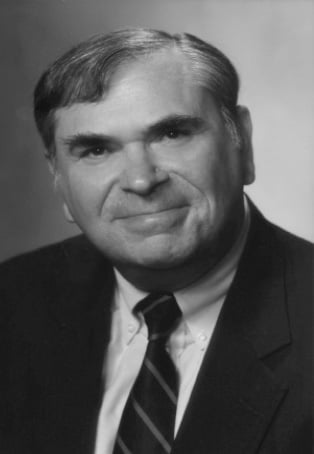Howard Phillips, a giant of the conservative movement and a founding member of the New Right, passed away on April 20 at the age of 72. A graduate of Harvard University, Phillips was appointed by President Nixon to head the Office of Economic Opportunity with a mandate to shut it down. When Nixon gave in to political pressure and declined to end funding, Phillips resigned in protest. He later left the Republican Party altogether because of what he considered its lack of faithfulness to the conservative cause. He would go on to found the influential Conservative Caucus and the U.S. Taxpayers’ Party (now the Constitution Party). He was the party’s nominee for president three times, in 1992, 1996, and 2000.
My first interaction with Howard Phillips was in 1996. I had been an enthusiastic supporter of Pat Buchanan’s GOP presidential campaign, and once it became apparent that Pat was not going to win, I was determined not to vote for Bob Dole. I was vaguely aware of the U.S. Taxpayers’ Party, so I mailed a request for some information.
A few days later I arrived at work and a message was awaiting me. A Mr. Howard Phillips had telephoned and wanted me to return his call. I was flabbergasted. I was just a wannabe activist looking for some information, and the head of the party was calling me personally. Of course I returned his call. We had a pleasant conversation, and he thanked me for my interest in the party. I thought I was the one who should be thanking him for calling me.
I met Howard personally later that year when he came to San Antonio, where I was living at the time, to meet with local party supporters. The meeting was at a Ryan’s Cafeteria, which should give some idea of the size of the operation we were running. There I asked Howard about the last name we had in common. I was curious where “his people” were from. Maybe we were kin. He graciously informed me that his grandparents had emigrated from Hungary, and their name had been changed to Phillips when they arrived at Ellis Island. “Oh, well,” I thought. “I guess we’re not kin.” Little did I know then how much confusion my last name would cause.
Later that evening I met an older lady who apparently knew Howard from some old political battles. When I introduced myself, she informed me that she could definitely see a family resemblance. At first I was baffled. How did she know my family, who were several states away? Then it dawned on me: She thinks I’m related to Howard. As delicately as I could, I informed her that we weren’t related.
This would happen repeatedly. I got listed as a San Antonio-area Taxpayers’ Party contact, and people just made assumptions. This wasn’t helped by the fact that Howard’s oldest son, Doug, actually did live in nearby Boerne, Texas. People assumed either that I was related to Howard, or that I was Doug. I was once even introduced as Howard’s son at an organizational meeting.
When I told Howard about this confusion, he got a big chuckle out of it.
My involvement with the party waned after the 1996 campaign for reasons unrelated to my enthusiasm for the cause, but my interests revived in 2008 when Alan Keyes attempted to gain the Constitution Party nomination. I franticly sent emails to Howard and every past Constitution Party contact I had, warning of the dangers of a Keyes nomination. Howard shared my concerns.
My last personal interaction with Howard was at the 2008 Constitution Party National Convention. He told me he appreciated my emails. That was Howard, always willing to interact personally with a party activist, even those of us whose involvement was sporadic.
Other New Right pioneers have and will receive more acknowledgment at their passing. Howard paid a price for leaving the Republican Party and “mainstream” conservatism. But to a fledgling activist like me, Howard Phillips was a “big name.” I will always be grateful that he picked up the phone and called a young supporter in Texas. I will always be thankful that he read an email from a concerned activist. May he rest in peace.

Leave a Reply